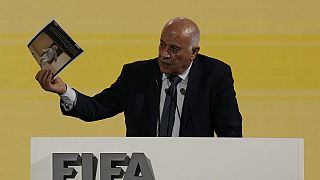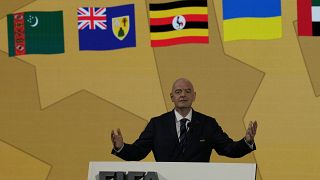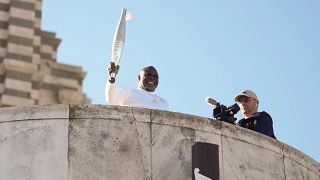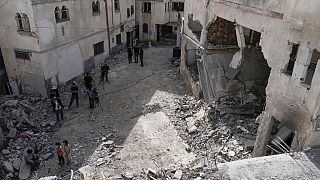France
With less than two months to go the start of the games in Paris, the International Olympic Committee (IOC) announced its largest refugee team to date on Thursday.
It was a moment of great joy for the 36 athletes from 11 different countries who will compete in 12 sports during the games.
They are athletics, badminton, boxing, canoeing, cycling, judo, breaking, shooting, swimming, taekwondo, weightlifting, and wrestling.
The team, the third to take part in the Summer Olympics, is made up of athletes from countries including several African countries, Syria, Iran, Afghanistan, Venezuela, and Cuba.
“Besides all the performance, it’s the emotional value, sending this symbol of hope to, the more than 100 million people who, unfortunately had to migrate,” said IOC president Thomas Bach.
He said he hoped their participation in the games would make the world aware of the magnitude of this crisis.
The IOC said all 36 athletes have refugee status in their host nations, and their inclusion was based on various criteria including sporting performance, countries of origin, as well as a balance of sports and gender.
The team is made up of 23 men and 13 women, from countries of origin on three continents: Africa, the Americas, and Asia.
It includes first-time Olympians, members of the previous Refugee Olympic Team Tokyo 2020, and Olympians who competed for their countries of origin before becoming refugees.
In Paris, the IOC Refugee Olympic Team will compete under the its own emblem – featuring a heart at its centre – instead of taking part under the Olympic flag.
It will be known under the acronym EOR from the French name “Equipe Olympique des Refugies”.
The refugee team was created by the IOC for the 2016 Olympics in Rio de Janeiro to allow athletes to keep competing, even if they have been forced to leave their home countries.
There were 10 athletes in Rio. Three years ago in Tokyo the number was 29 across 12 sports.













Go to video
76 million internal displacements recorded in 2023
01:42
Biden administration rebuilt refugee programmes after Trump-era cuts
Go to video
Paris inaugurates giant water storage basin to clean up the River Seine for Olympic swimming
Go to video
Paris Olympics: Pro-Palestinian protesters demand Israel's participation be limited as was Russia's
Go to video
Paris 2024 Olympics: South Sudanese refugee suspended for doping
Go to video
Police evict migrants from a makeshift tent camp in Paris